Kupunn farmers claim Arrow Energy didn’t notify them of deviated gas wells drilled underneath their property
Outraged property owners west of Dalby have claimed they weren’t notified about gas wells being drilled underneath their farms by a multinational energy company, and say they have begun to see the damage done to their paddocks.
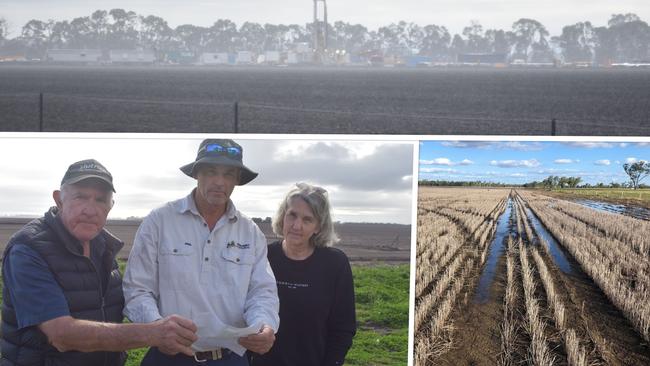
Dalby
Don't miss out on the headlines from Dalby. Followed categories will be added to My News.
Outraged Western Downs farmers have claimed a multinational energy company failed to notify them when several deviated wells were drilled underneath their properties, and now fear for the damage it could do to their land.
Several property owners across the Kupunn flood plains, west of Dalby, have hit out at Arrow Energy after they became aware of Daandine Field and Surat Gas Project wells drilled underneath their farms.
Kupunn’s Zena Ronnfeldt and her husband Gary said they could see wells drilled along the boundary of their property, but claim the gas company never told them what type they were, or if they came into their property.
They say these developments were drilled underneath their paddocks, with the gas company failing in their duty to notify them.
Deviated gas wells are drilled on an incline into coal seams below ground level, which is argued to reduce the impacts on agricultural land.
According to Mrs Ronnfeldt, her farm has already been affected by side effects from the gas wells.
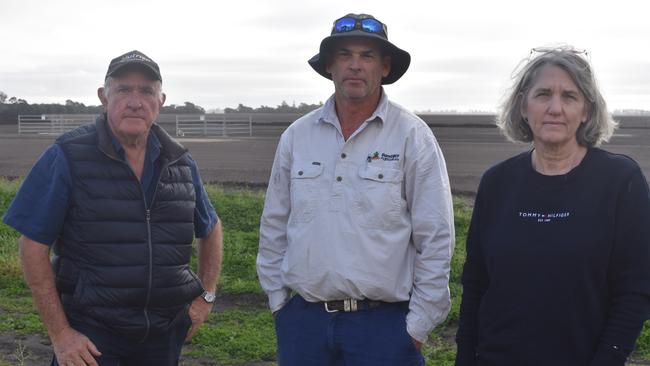
“We have an older gas field where they’ve drilled wells along the boundary of our property, but it was never confirmed to us what type of wells they were,” Mrs Ronnfeldt said.
“About the same time as Arrow started to ramp up their development, we noticed some subsidence on the back of our property that backs onto the fields.
“We started to realise we had some irrigation problems as water began to sit up along the ground and not drain properly.”
Subsidence is the swelling and contraction of the ground due to changes in pressure induced by the extraction of water and gas under the surface.
Mrs Ronnfeldt said pools of water now accumulate on a part of land, and she fears the deviated wells could increase the rate of subsidence over the next several years.
She said farmers were now faced with a “diabolic problem”, and claimed her family was hindered in planting a winter crop due to a large area of land gathering water.
These issues on her property can have dire consequences to their farming business according to Mrs Ronnfeldt, and believed it could cost “millions of dollars” in the long run if farms were prevented from planting their crops.
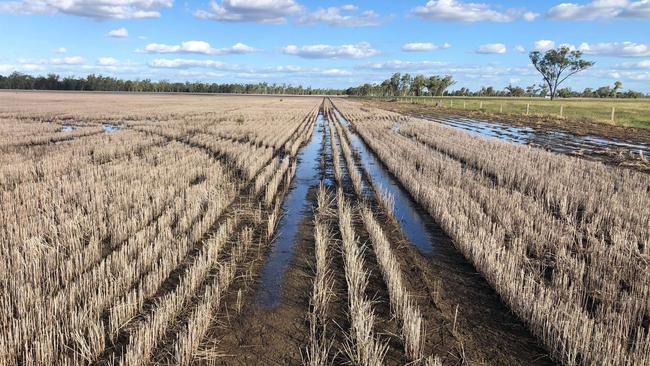
The landowners say they were all issued with notices of entry after approaching Arrow with their concerns after they conducted their own research with the State Government.
But Mrs Ronnfeldt said the delay in communication has left property owners unable to plan for potential side effects.
Nearby property owner Mark Schuurs said he was concerned about the “average” subsidence measurement of 80mm given by Arrow Energy.
He claims it doesn’t factor in extremes, which he believes could go up to 150mm at some points.
“When we purchased these properties, we knew we would have to deal with the natural environment, but these wells are an introduced impact onto our business,” Mr Schuurs said.
“One of the things the resource companies have told us is that these wells were preliminary activity, however we can see that it’s advanced, as it’s already causing an impact.”
The farmers say the plains at Kupunn were extremely flat compared to other agricultural areas across south west Queensland, and therefore don’t have natural slopes to help with irrigation.
Mrs Ronnfeldt said this means the growth of subsidence could potentially impact the irrigation and ring tanks on her property, as well as prevent them from freely drilling water bores into the ground.
“We are extremely stressed about the potential for what’s going to happen to our irrigation country,” she said.
“This water just sits there now and we have to wait for it to evaporate.
“It’s difficult to spray, we can’t harvest on it, plant on it, it’ll lead to weed management problems, and our yields will be reduced.
“It will create all sorts of management problems.”
Farmer Wayne Newton said until Arrow Energy can prove it won't cause irreversible damage, they should “go somewhere else”.
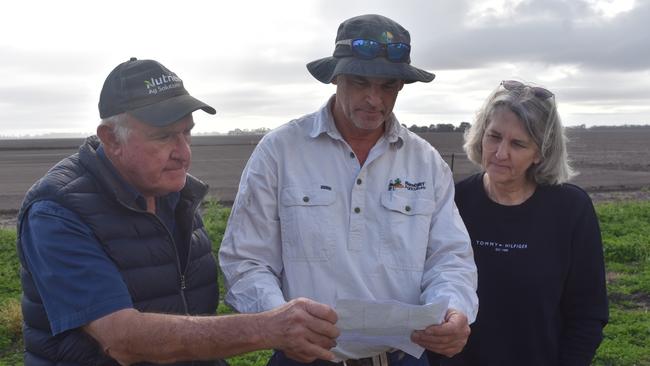
“We’ve got some of the best areas of farming in the state, and now we’re faced with these environmental impacts that will affect employment and the gross value of production in the area.
“We could possibly lose big chunks of farming land and a crash in land values.
“We could see wholesale business destruction.”
An Arrow Energy spokesman said at the time that the relevant deviated wells were drilled, they “genuinely did not believe that the provision of entry notices was required” under the legislation.
“The Department of Resources has only recently made changes to the template entry notice to clarify this matter, and we understand that it is finalising a fact sheet to provide clarity for all stakeholders,” the spokesman said.
“As soon as it became clear that entry notices were indeed required, we proactively notified all impacted landholders in our Surat Basin development areas and provided detailed maps showing the location, depth and trajectory of all deviated wells that traverse into their properties.
“We also proactively engaged with the regulator and the Gas fields Commission.”
The spokesman denied the harmfulness of the wells, and said they were “overwhelmingly positive for coexistence” as they materially reduce surface impacts, and gave landholders much greater flexibility about the location of well pads to minimise impacts on farming operations.
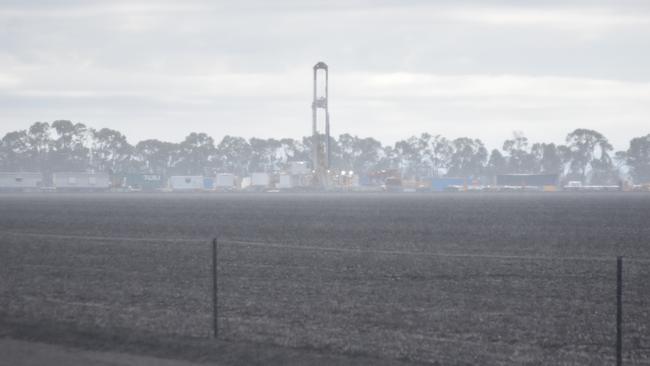
In terms of compensation, the spokesman said Arrow would ensure conduct and compensation agreements (CCA) were in place wherever required under the legislation.
“The location, trajectory and depth of deviated wells that enter neighbouring private land is such that they will ordinarily have no impact or only minor impact on the business or land use of the property,” he said.
“As such, they will not ordinarily require an upfront CCA to be negotiated and will instead be treated as preliminary activities requiring notice only, which is consistent with the view of the Department of Resources.
“More broadly, we note that there is no evidence that the presence of CSG wells (whether traditional vertical wells or deviated wells) devalues the landowners property.
“If there are future compensable impacts on a landowners property as a result of our operations, Arrow will fully stand behind its obligations to compensate and/or rectify those impacts.”



